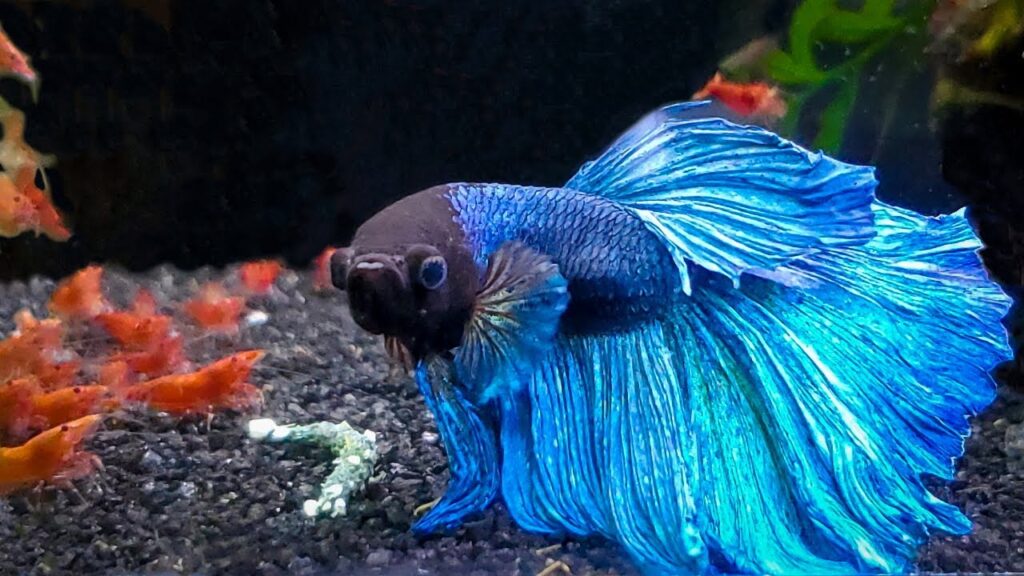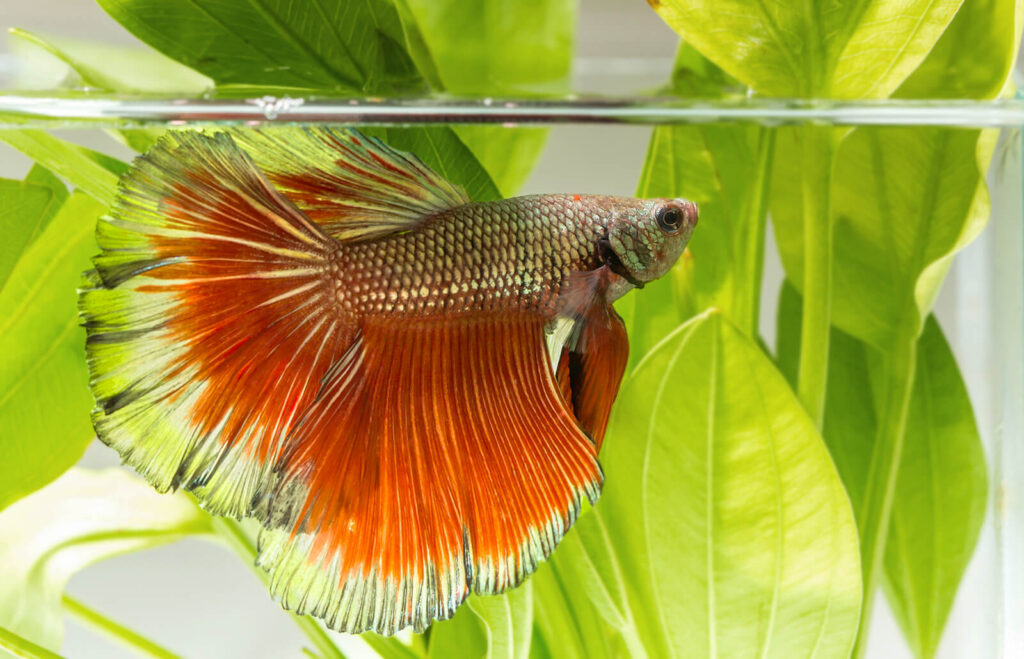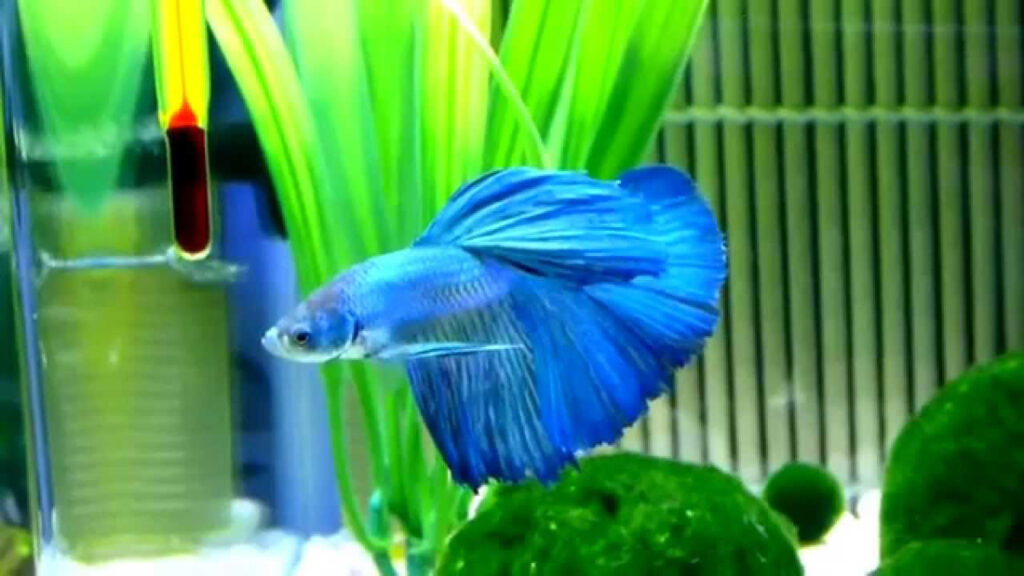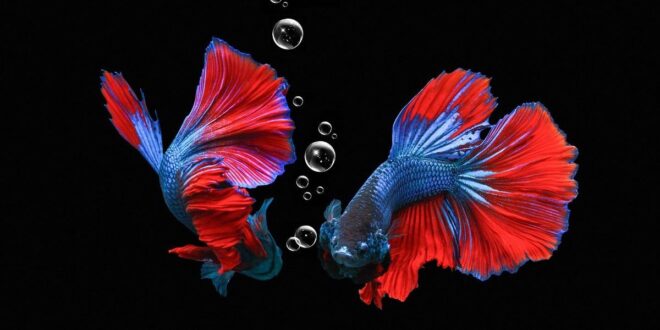Betta fishes are simply the most amazing and beautiful fish forms that you will see in your life. Their colors glitter in the water and fascinate everyone who looks at them. That’s why, even after being a little hostile or aggressive to other fish species, they make absolutely wonderful pets! Provided you give them their own space and haven, they will think twice before troubling your other fishes.
The amazing thing about betta fishes is they have several distinct features. First of all, they are anabantoids, i.e. they are from the suborder of Anabantoidei under the order Anabantiformes. This may sound scientific jargon but basically, it means that they belong to a family of fishes that have a special organ called the labyrinth organ. Consequently, they are also called labyrinth fishes because of their possession of this organ.
The betta fish is also very talkative and friendly, that is, they respond to you if you tap on their tank. They prefer solitude and a lonely corner much more than other fishes. If these fishes fascinate you, then you can learn more about them here.
One more interesting thing that you might have heard before buying them is that they can breathe and live out of water. How long, you may ask? We’ll answer that question, along with others, in this article so stick around if you want to know more.
Table of Contents
How can betta fishes breathe out of water?

Remember the labyrinth organ we mentioned earlier and how betta fishes are anabantoids? That’s the clue to this puzzle. The labyrinth organ special to the anabantoids is actually an organ that lets fishes breathe air out of water. That means, even if a betta fish runs out of oxygen in the water it can just plop its head out and breathe some from the atmospheric air instead. However, it’s not necessary to do so and they only do this if there is no oxygen in the water around them.
This single ability allowed betta fishes to even survive tough conditions in the rice fields and drainage systems of Southeast Asia where it was first found. This is why these fishes can survive in murky waters or stagnant ponds where other fishes would die instantly, but we really advise you don’t keep them there! That means even if one plops out of water sources like ponds or fish tanks, they can still survive for quite a bit of time. The best environment for them is a fish tank or aquarium that has a continuous supply of oxygen and fresh water.
What factors affect the breathing capacity of betta fishes when they are out of water?

Before we start with anything, we highly advise you to not take them out of the water at any costs even if they can breathe and survive, not even as a joke. It just feels morally wrong (imagine if a giant hand put you in the middle of an ocean) while there is also the chance that your betta might die regardless of its ability to survive or get permanent damage to its scales. We hope you understand the gravity of this and now without further ado, let’s discuss the various factors that determine the breathing capacity of a betta fish.
Climate and temperature
Depending on the climate you live in, they might survive for a very short time or a very long time. If you live in an especially cold environment, like the regions near the Arctic Ocean and the Antarctic Ocean, there is a huge opportunity for your fish to survive with ample time out of the water than other, drier and hotter climates like the ones near the Equator.
Tropical climate doesn’t suit these fishes at all and there is a huge chance that your fish just plops out of the water and dies in a few minutes if you keep them in a hot environment. Additionally, you shouldn’t be keeping the fishes in such temperatures anyway in the first place because their recommended temperatures are 21 to 23 degrees celsius!
Humidity and moisture

The humidity in the air dictates the amount of moisture in it. If the air has high humidity, then that’s good for your betta fish in case it accidentally jumps out of its tank. That’s because the moisture in the air is absorbed by the betta fish’s skin to some extent which makes them survive more.
However, things are the opposite in an area that hasn’t seen humidity and moisture in months and is bone-dry to its core. The opportunity for your fish to make it through alive in such an environment becomes considerably low and you should keep an extra eye on your fish in such scenarios.
Fall damage and the surface it lands on
The surface your fish lands on has a huge impact on its survival rate and breathing capacity. If it’s a water-absorbent surface like a cloth carpet, then it’ll absorb all the water inside the betta fish’s body and make it drier. If it’s a normal surface with tiles, the water won’t dry easily for a long time keeping the fish wet and alive. All that is in vain, though, if the jump your fish makes has a height of 5ft or more, which can damage your fish’s organs severely or kill it instantly.
How long can betta fishes live out of water?

Now that you know all the factors that determine a betta fish’s survival, we arrive at the question whose answer is why you came here. Though, we think you might already have a fair guess at the true answer to this question which is – it depends.
Theoretically speaking, betta fishes can live out their entire lives out of water provided that you find some way of feeding them and regularly keep sprinkling water on them. Once again, do not try this with your betta fish.
We can make fair estimates, though. In the best conditions possible – that is, a humid climate, non-absorbent surface, cool temperature – your fish can survive up to 5-6 hours. In the worst conditions, with no humidity, absorbent surface, and hot temperatures, it’d be a miracle if your betta can survive for 30 minutes.
Conclusion
We hope this article was informative for you, and if it was, please consider following our website for regular updates as it will help us out immensely.
 World Magazine 2024
World Magazine 2024






